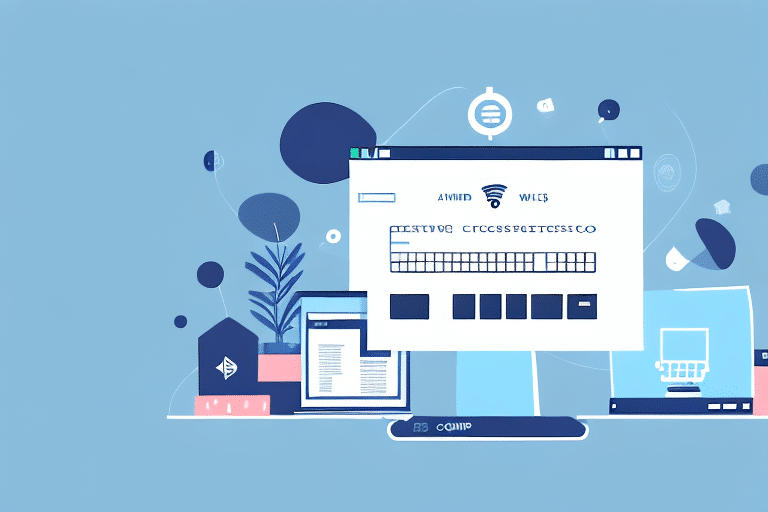Benefits of Ecommerce Accounting Software
In today’s digital marketplace, ecommerce accounting software is essential for managing the intricate financial aspects of online businesses. By leveraging advanced tools, businesses can not only streamline their operations but also gain valuable insights into their financial health.
Streamlining Business Operations
Ecommerce accounting software automates numerous financial tasks such as inventory tracking, order management, invoicing, and financial reporting. According to a Capterra report, businesses that automate their accounting processes experience a 30% increase in efficiency. This automation reduces the manual workload on your finance team, allowing them to focus on strategic activities like sales and marketing.
Saving Time and Money
Automation not only saves time but also reduces operational costs. By minimizing manual data entry, businesses can decrease the likelihood of human errors, which can be costly. Additionally, ecommerce accounting software often includes features like automatic invoicing and payment reminders, which help in improving cash flow and reducing the time spent on administrative tasks.
Accurate Financial Reporting
Accurate financial reporting is crucial for informed decision-making. Ecommerce accounting software provides real-time financial data, enabling businesses to monitor their financial performance continuously. This accuracy helps in identifying cost-saving opportunities and assessing profitability. According to the Association of Chartered Certified Accountants (ACCA), businesses with accurate financial reporting are 20% more likely to make profitable decisions.
Key Features to Look for in Ecommerce Accounting Software
Choosing the right ecommerce accounting software involves evaluating several key features to ensure it meets your business needs.
Automation of Financial Tasks
Look for software that automates repetitive tasks such as invoicing, expense tracking, and payroll. Automation reduces the risk of errors and frees up valuable time for your team.
Real-Time Financial Reporting
Real-time reporting provides up-to-date insights into your financial status, allowing for timely decision-making. Features like customizable dashboards and detailed analytics are essential for monitoring key financial metrics.
Integration Capabilities
Ensure the software can seamlessly integrate with other tools and platforms you use, such as your ecommerce platform, CRM, and payment gateways. Integration minimizes data discrepancies and ensures a smooth workflow.
Security Features
Financial data security is paramount. Look for software that offers robust security measures such as data encryption, secure login protocols, and compliance with industry standards like GDPR and PCI DSS.
Scalability and Customization
As your business grows, your accounting software should be able to handle increased transaction volumes and offer customizable reporting features to cater to your specific needs.
Choosing and Implementing the Right Software
Selecting the right ecommerce accounting software requires careful consideration of your business needs and goals.
Research and Evaluation
Start by researching different software options, reading reviews on platforms like Gartner and Capterra, and comparing features and pricing to find the best fit for your business.
Integration Process
Integrate the chosen software with your existing ecommerce platform by following a step-by-step guide:
- Research and select compatible software.
- Prepare your system for integration by backing up data.
- Set up and configure the software according to your business needs.
- Test the integration to ensure all systems communicate effectively.
- Begin using the software to manage your finances.
Training Your Team
Effective implementation requires training your team to use the software efficiently. Provide comprehensive training sessions and create documentation to help your team understand all functionalities.
Comparing Ecommerce Accounting Software to Traditional Methods
Traditional accounting methods, such as manual bookkeeping and spreadsheets, are increasingly being replaced by specialized ecommerce accounting software. Here’s why:
Efficiency and Accuracy
Manual methods are time-consuming and prone to errors. Ecommerce accounting software automates processes, significantly reducing the chances of mistakes. According to a study by Deloitte, businesses using automated accounting systems report a 50% decrease in financial errors.
Real-Time Insights
Unlike traditional methods that require time to compile and analyze data, ecommerce accounting software provides real-time financial insights. This immediacy allows businesses to react swiftly to market changes and make informed decisions.
Scalability
As your business grows, traditional accounting methods can become cumbersome. Ecommerce accounting software scales with your business, handling increased transaction volumes and more complex financial data effortlessly.
Future Trends in Ecommerce Accounting
The landscape of ecommerce accounting is evolving with technological advancements. Staying abreast of these trends can give your business a competitive edge.
Automation and Artificial Intelligence
Automation and AI are transforming ecommerce accounting by enabling predictive analytics, automated reconciliations, and intelligent financial forecasting. These technologies enhance accuracy and provide deeper financial insights.
Blockchain Technology
Blockchain offers a secure and transparent method for recording financial transactions. Its decentralized nature reduces the risk of fraud and enhances data integrity, making it an attractive feature for ecommerce accounting software.
Integration with Emerging Platforms
Future accounting software will offer even more robust integrations with emerging ecommerce platforms, CRM systems, and other business tools, creating a more unified and efficient business ecosystem.
Best Practices and Common Mistakes
Maximizing the benefits of ecommerce accounting software involves adhering to best practices and avoiding common pitfalls.
Best Practices
- Regular Reconciliation: Frequently reconcile your accounts to ensure accuracy and identify discrepancies early.
- Comprehensive Training: Invest in thorough training for your team to fully utilize the software’s capabilities.
- Leverage Integrations: Use integrations to streamline data flow between different business systems, reducing manual input and errors.
- Utilize Real-Time Data: Make informed decisions by regularly reviewing real-time financial reports and analytics.
Common Mistakes to Avoid
- Poor Integration Setup: Failing to correctly integrate your accounting software with other systems can lead to data discrepancies.
- Insufficient Training: Without proper training, your team may not utilize the software effectively, reducing its benefits.
- Neglecting Regular Reconciliation: Not regularly reconciling accounts can result in unnoticed errors and financial inaccuracies.
- Overlooking Security Measures: Ignoring security features can expose your financial data to risks.
Case Studies and Real-World Examples
Real-life examples demonstrate the tangible benefits of implementing ecommerce accounting software.
Case Study 1: Reducing Labor Costs
A mid-sized online retailer integrated ecommerce accounting software, automating invoicing and expense tracking. This led to a 40% reduction in labor costs and a significant decrease in accounting errors.
Case Study 2: Improving Financial Accuracy
An ecommerce startup adopted comprehensive accounting software, providing real-time financial insights. This enabled the business to make data-driven decisions, resulting in a 25% increase in profitability within the first year.
Case Study 3: Streamlining Inventory Management
A growing online store utilized accounting software with integrated inventory management features. This integration streamlined their operations, reduced stockouts by 30%, and improved overall customer satisfaction.
Conclusion
Ecommerce accounting software offers a multitude of benefits, from automating financial tasks and saving time to providing accurate real-time financial insights. By selecting the right software, integrating it effectively, and adhering to best practices, your online business can achieve greater efficiency, improved financial accuracy, and sustained growth. Embracing these advanced tools is a strategic move to ensure your ecommerce business not only survives but thrives in the competitive digital marketplace.






















